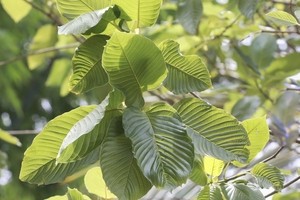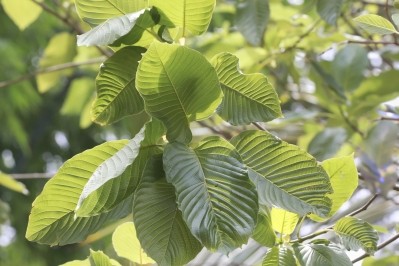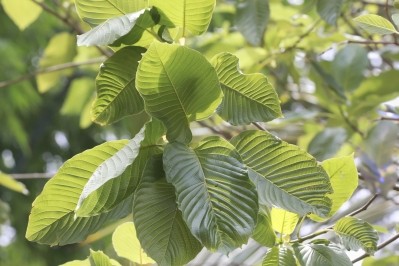Months after issuing import ban, FDA still working to get kratom off market

Last week US Marshals, at the behest of the Food and Drug Administration, seized more than 25,000 pounds of raw kratom material worth more than $5 million from Rosefield Management, Inc. in Van Nuys, CA
Kratom is the common name of the botanical Mitragyna speciosa tree, a member of the coffee family native to to Thailand, Malaysia, Indonesia and Papua New Guinea. FDA says Kratom is promoted on numerous websites in the United States for its psychoactive and opioid-like analgesic effects and for use in the treatment of morphine and heroin addiction, but it is not approved in the United States for any medical use.
On Feb. 28 FDA issued an import alert on the ingredient. In the alert, the agency said kratom qualifies as a dietary ingredient under federal law but is also clearly a New Dietary Ingredient. Presumably any dietary supplement manufacturing would have to file a NDI notificaiton if it wanted to market the ingredient.
But according to FDA’s, far from having a history of safety, a review of the literature on the ingredient shows “serious concerns regarding the toxicity of kratom in multiple organ systems. Consumption of kratom can lead to a number of health impacts, including respiratory depression, nervousness, agitation, aggression, sleeplessness, hallucinations, delusions, tremors, loss of libido, constipation, skin hyperpigmentation, nausea, vomiting, and severe withdrawal signs and symptoms.”
“We have identified kratom as a botanical substance that poses a risk to public health and has the potential for abuse,” said Melinda Plaisier, the FDA’s associate commissioner for regulatory affairs. “This action was taken to safeguard the public from this dangerous product, and FDA will continue to take aggressive enforcement actions against products that are promoted for uses that are unapproved.”
According to FDA, more than 500 cartons of kratom that were imported from C.V. Bali Herbal of Indonesia were seized from Rosefield’s Van Nuys facility. Rosefield distributed kratom after receiving instruction to do so from Wholesale Shamanic Herbs. Wholesale Shamanic Herbs promoted kratom on its website with claims that the product is intended for use in the diagnosis, cure, mitigation, treatment or prevention of disease.
Undeclared ingredients
James Neal-Kababick, head of Flora Research Labs in Grants Pass, OR, said the agency’s concern about kratom is well placed. Samples of the botanical recently landed in his lab for testing for undeclared pharmaceutical ingredients.
“Kratom is still being illegally marketed as a dietary supplement. There is so much web availability. I suspect we will see more of an issue with this,” Neal-Kababick told NutraIngredients-USA.
“The product that was seized was on its way to a company that intended to market it as a dietary supplement. But it also is still sold in smoke shops,” he said.
Neal-Kababick said he has been contacted by a physician who is treating a patient who used kratom and is suffering from symptoms that resemble those of Addison’s disease, an endocrine system disorder that can cause abdominal pain and weakness and in severe cases can lead to coma. Neal-Kababick said he is testing the material for the level of alkaloids present as well as for any APIs present, including analogs of tramadol, a prescription opioid pain reliever.
“It is also still sold in smoke shops without any claims for what it should be used for. It is in fact extremely addictive. It has a compound that is more powerful than heroin. A lot of the product out there is not just kratom herb but is kratom extract. Without knowing the concentration a user could easily overdose on it,” Neal-Kababick said.
















